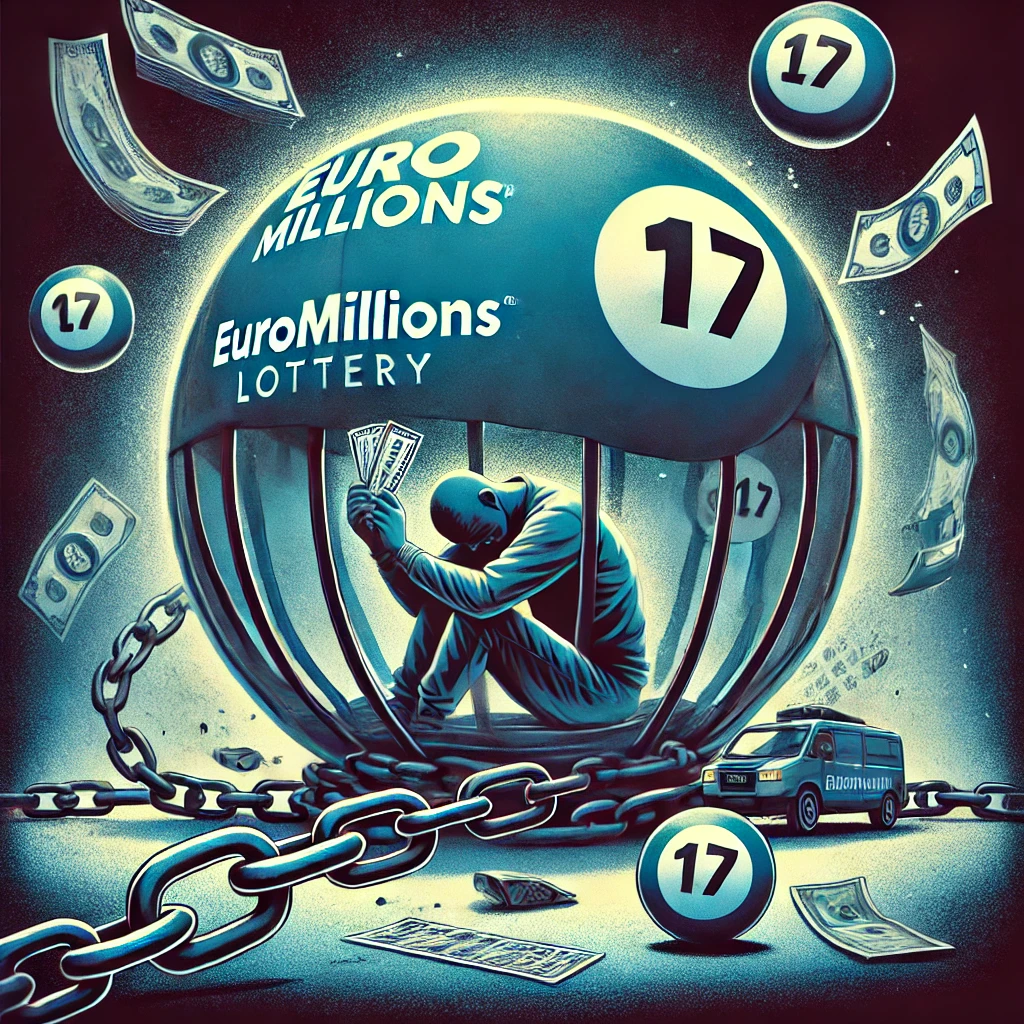The Hidden Addiction: How Lotteries Like EuroMillions Are A Form of Gambling
Gambling is an activity that has been around for centuries, captivating people from all walks of life. While it may seem like a harmless pastime for some, for many it becomes a dangerous and costly addiction. When we think of gambling, images of flashing casino lights, slot machines, or poker tables may come to mind. However, gambling extends far beyond the walls of casinos. One of the most overlooked forms of gambling is the lottery—especially popular games like EuroMillions.
The Nature of Gambling and Why Lotteries Are Included
Gambling, at its core, is about risking something of value—usually money—in the hope of winning something greater. Whether you’re playing blackjack, betting on sports, or purchasing a lottery ticket, the essence of the activity remains the same: you are engaging in a game of chance, where the odds are almost always against you.
Lotteries like EuroMillions are no different. Players pay for the opportunity to win enormous sums of money, despite the fact that the chances of winning are astronomically low. In EuroMillions, for example, the odds of hitting the jackpot are roughly 1 in 139 million. To put that into perspective, you’re more likely to be struck by lightning than to win the lottery.
Why Some People Don’t Consider Lotteries as Gambling
Interestingly, many people who frequently participate in lottery games do not consider themselves to be gamblers. There is a widespread misconception that because lotteries are government-sanctioned and widely advertised, they aren’t a form of gambling. In many countries, lottery tickets can be purchased at nearly every corner shop, making it feel more like a casual purchase than a bet.
For some, playing the lottery has become so ingrained in their weekly routine that they don’t think twice about it. EuroMillions draws happen twice a week, giving players multiple opportunities to “try their luck.” This regularity fosters a pattern of behavior that can easily turn into a gambling habit without the person realizing it.
The Cost of Regular Play
The fact that lotteries are relatively inexpensive compared to other forms of gambling only adds to the misconception. However, the cumulative cost can be substantial, especially for individuals who participate regularly. Someone who spends €5 on EuroMillions tickets twice a week might not think it’s a significant amount of money, but over the course of a year, that adds up to €520.
For many people, this expense is justified by the dream of winning big. But the reality is that the vast majority will never win a significant amount. Meanwhile, the small amounts they continue to spend add up, sometimes leading to financial difficulties. This can be particularly damaging for individuals who are already struggling with money but continue to hope for a life-changing windfall that is statistically unlikely to ever come.
The Psychological Trap of “Near Wins”
One of the reasons why lotteries can be so addictive is the psychological phenomenon known as the “near win.” If a player’s numbers are close to the winning combination, they may feel as though they were “almost there” and are therefore tempted to try again. This sense of being on the verge of success can be incredibly powerful and is one of the key reasons why people continue to buy tickets week after week.
What’s more, lotteries often advertise the stories of big winners, reinforcing the idea that a life-changing win is just a ticket away. These advertisements can make it feel as though winning the lottery is within reach, even though the odds remain overwhelmingly against the player.
The Broader Impact of Gambling Addiction
The addiction to gambling can take a serious toll on an individual’s life. Financial problems are just the beginning. Those addicted to gambling often experience strained relationships, increased stress, and a sense of hopelessness when their losses pile up. In severe cases, gambling addiction can lead to mental health issues like depression and anxiety.
Lotteries, because of their low barrier to entry, can be particularly harmful. They are accessible to almost everyone, including people who might not normally participate in other forms of gambling. This accessibility, combined with the allure of a massive payout, makes lotteries a potentially dangerous form of gambling.
Recognizing the Signs of Addiction
For individuals who play the lottery regularly, it’s important to recognize the warning signs of gambling addiction. These may include:
- Spending more money on lottery tickets than originally planned.
- Justifying frequent lottery play as “harmless” or “normal.”
- Feeling frustrated or upset after a loss but continuing to play.
- Borrowing money or cutting back on essential expenses to afford tickets.
- Believing that a big win will solve personal or financial problems.
If any of these behaviors sound familiar, it may be time to step back and evaluate whether lottery participation has become an unhealthy habit.
Conclusion: Lotteries Are Gambling
Lotteries like EuroMillions are often overlooked as a form of gambling, but they fit all the criteria. They are games of chance, and the odds are stacked heavily against the player. While the occasional lottery ticket may seem like a harmless indulgence, regular participation can lead to financial hardship and gambling addiction. It’s crucial to understand the risks involved and to recognize that the dream of a life-changing win is, for most people, just that—a dream.
Gambling, whether through lotteries or other means, should always be approached with caution. If you or someone you know is struggling with a gambling addiction, resources are available to help manage and overcome it. Understanding that lotteries are a form of gambling is the first step in protecting oneself from the dangers of addiction.
